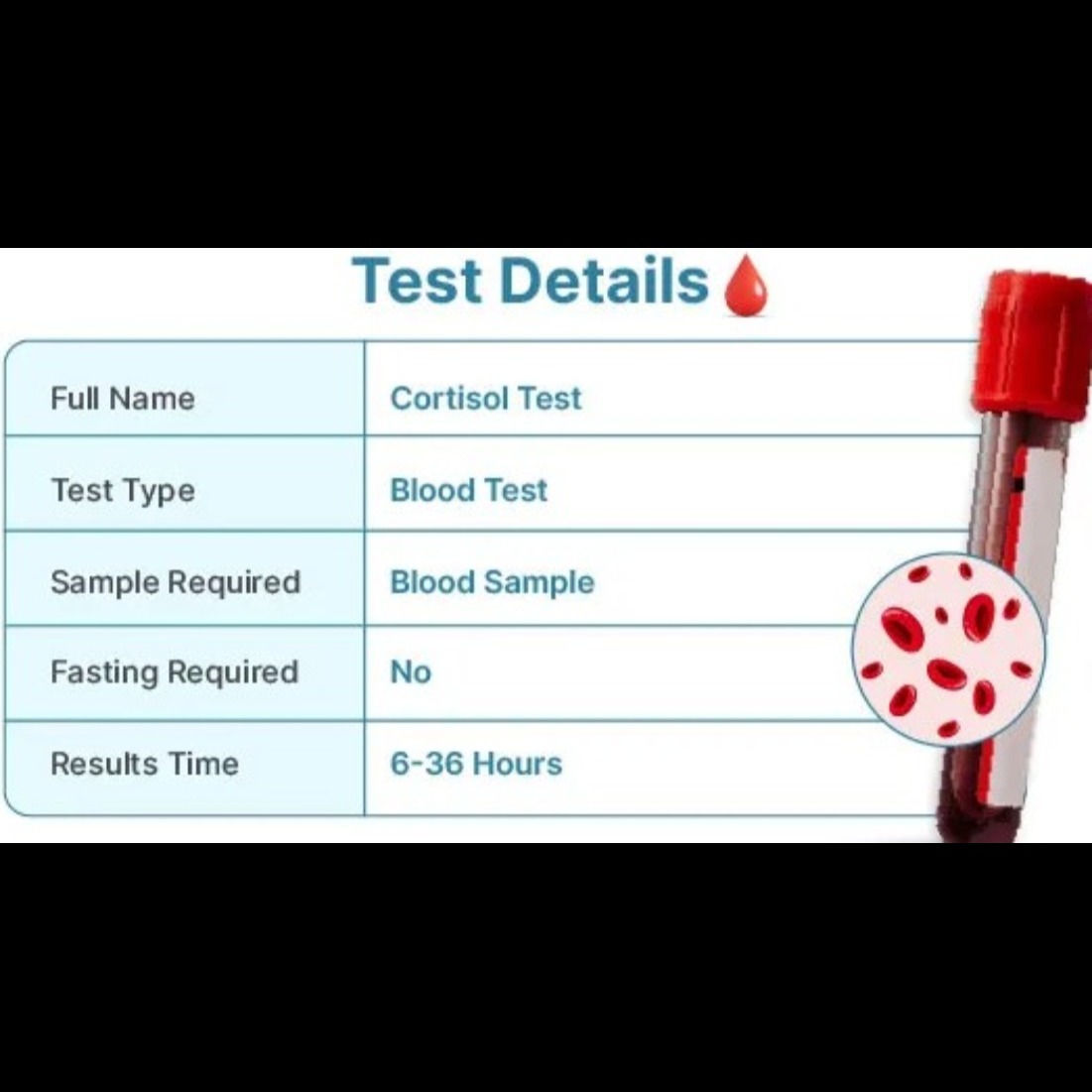
A cortisol test measures the level of cortisol in ...

A cortisol test measures the level of cortisol in the blood, urine, or saliva to assess adrenal gland function and diagnose conditions like Cushing's syndrome or adrenal insufficiency. It helps determine if the body is producing too much or too little cortisol, which can indicate various health problems. Types of Cortisol Tests: Blood Test: Measures cortisol levels in the blood, typically taken in the morning when levels are highest. Urine Test: A 24-hour urine collection provides an average cortisol level over a day. Saliva Test: Often used to diagnose conditions like adrenal fatigue or Cushing's syndrome, measuring cortisol levels at different times of the day, often at night. Purpose of a Cortisol Test: Diagnose adrenal disorders: Helps identify conditions like Cushing's syndrome (excess cortisol) or Addison's disease (insufficient cortisol). Evaluate pituitary function: Cortisol levels are influenced by the pituitary gland, which produces ACTH (adrenocorticotropic hormone), which stimulates the adrenal glands to produce cortisol. Monitor stress response: Cortisol is a stress hormone, and its levels can be affected by chronic stress or certain medications. Evaluate medication effectiveness: Cortisol levels can be monitored to assess the effectiveness of corticosteroid medications. Procedure: Blood test: A blood sample is taken from a vein, usually in the arm. Urine test: A 24-hour urine collection is required, with instructions provided on how to collect and store the urine samples. Saliva test: A saliva sample is collected, usually with a swab, and sent to a lab for analysis. Results and Interpretation: Normal range: The normal range of cortisol levels can vary depending on the time of day and the type of test (blood, urine, or saliva). Abnormal results: Elevated or low cortisol levels can indicate various health problems, and further investigation may be needed. Important Considerations: Timing: Cortisol levels fluctuate throughout the day, so the timing of the test can be crucial for accurate results. Medications: Certain medications can affect cortisol levels, so it's important to inform your doctor about any medications you are taking. Other factors: Stress, exercise, and certain medical conditions can also affect cortisol levels In Pimpri Chinchwad Pune Exploring Truth... NIDAN Pathology Laboratory ISO 9001:2015 Certified Book Free Home Collection : 7775837228/8999989854 Email Id: nidanpathology331@gmail.com Rupeenagar Chakan | Punawale Wakad | Pimpari | Krushnanagar | Ravet
Keywords
Subscribe for latest offers & updates
We hate spam too.


